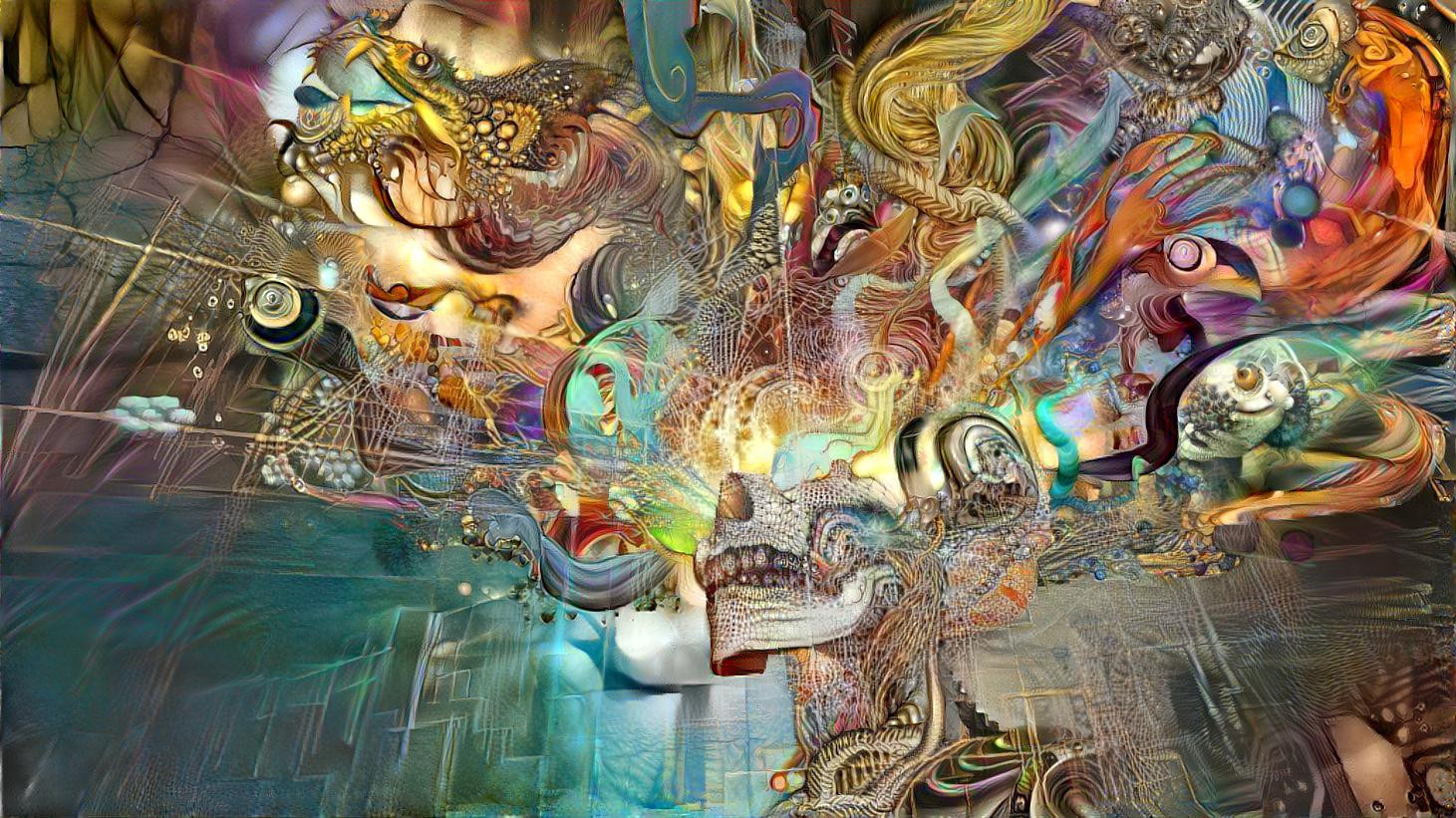When we live our lives on the basis of thought then we are always going to be ‘looping back on ourselves’, which is to say, ‘thinking that we’re ‘getting somewhere when we aren’t’. This is inevitably going to be the case because thought can never go beyond its own limiting assumptions. Thought is the same thing as its limiting assumptions and thought can never go beyond itself. Thought is quintessentially literal in its nature – it doesn’t allow for any different possibilities of interpretation, and so of course it can never go beyond itself. That is inherent in the very nature of thought.
Even if we were willing to acknowledge this to be the case (which mostly we aren’t) we still probably won’t see why this should mean that we ‘won’t ever get anywhere’ – we don’t perceive this to be the case, after all. If we were to perceive such a thing then this perception would be highly distressing for us; this perception would be highly perplexing. There are two possible reasons for us not perceiving this type of stuckness – one very obvious reason would be that we aren’t stuck and in this case the reason why we don’t perceive ourselves to be stuck is that we aren’t living our lives on the basis of thought, and so as a result of this freedom from thought we are actually growing in life rather than continually getting stuck in our limiting idea of ourselves.
The other reason why we may not be perceiving any stuckness isn’t because we aren’t stuck but because thought is deceiving us that we’re ‘getting somewhere’ when we’re not. Thought is actually very good at deceiving us in this way and we’re falling for it all the time. Every time we make a goal for ourselves and then get a good feeling out of coming closer to achieving it we are imagining that we’re ‘getting somewhere when we’re not’. A goal isn’t a real thing, after all – it’s just something that we’ve made up ourselves and so getting closer and closer to realizing it doesn’t actually mean a hell of a lot! We’re getting closer and closer to an imaginary limit, but so what?
Goals are important in a purely practical sense (or at least they can be) but that still doesn’t mean that they’re ‘real’! For example, if I make a goal of having a job and a car by the age of twenty then that’s fine and possibly having this goal will help me stay focused and keep up the necessary motivation, but it’s still only an arbitrary demarcation. The goal vanishes as soon as it is reached and then there is the rest of my life to be getting on with – the specific set of circumstances that I have called ‘my goal’ isn’t an endpoint that I can triumphantly arrive at (and then rest on my laurels) it’s merely a limit that I have projected, as we have already said. Life continues as it always does because life has nothing to do with the goals that we set, the limits that we project. Life is one thing and our ideas about it quite another.
The reason we’re so hung up on achieving goals isn’t because of their practical value however. There’s nothing so very glamorous or exciting about the mundane practicalities of life – the reason for our fascination (or intoxication) with goals is because they provide us with the illusion that we’re getting somewhere when we’re not! We’re drawing a line in the sand (so to speak) so that we can get a euphoric lift from reaching that line. We’re imposing our own meaning on the proceedings. This is the same for all games of course – we pick a thing and then say that attaining this thing equals winning, and then we feel good when we are able to do that. We’re not actually getting anywhere with the game, but we are nevertheless getting the feeling that we are.
This isn’t necessarily a terrible thing or anything like that, but if we become addicted to this manoeuvre as our way of feeling good then it actually does become a terrible thing. It becomes a terrible thing because by dedicating ourselves to imaginary or virtual change the whole time we have effectively cheated ourselves out of the genuine article. The imaginary type of change is much, much easier on us than the real type and so by virtue of the well-known psychological law which states that ‘we will always take the easiest route in life’ and because it is easier by far to mimic meaningful change by orientating ourselves towards our projected framework (which is only there because we say it is) then this is what we will almost always do. Rather than doing the required work, we will cheat! The only reason we wouldn’t ‘cheat’ in this way would be if some other factor comes into the equation – some other factor that isn’t all about calculating the easiest route between A and B…
The good feeling that we get as a result of getting closer and closer to our goal is the good feeling that comes out of optimization and optimization means approaching closer and closer to an imaginary limit, within the terms of that limit. It is ‘activity that makes sense within the system of orientation that is the unreal or projected framework’. When we see optimization-type activity from a broader basis than the one which is assumed by the framework within which that activity takes place then it– becomes vanishingly insignificant. When seen with some degree of ‘oversight’, the goal-orientated activity – however intensely motivating it might be when we are stuck in it and have no perspective on what we’re doing – can be observed to be perfectly null. Space falsifies thought, in other words. Space always falsifies thought and that is because thought can only function as thought when there is zero perspective, zero space, zero freedom of perception.
Or as we could alternatively say, thought is literal and ‘literal’ means that there is no space, no leeway, no possibility of seeing things in another way. The world of literal truths is the antithesis of space, and space – or the absence of fixed or unquestionable modes of interpretation – is the only thing that is real. When we insist on having a fixed or unquestionable viewpoint (even though this is not a consciously volitional type of thing) we necessarily incur the nullity, therefore. When we can’t see optimization to be a perfectly null operation then that means that we have incurred the nullity and – very clearly – we are the most reluctant we ever could possibly be to not see our thoughts (or our literal statements about reality) as being meaningless or empty. This is another way of talking about ontological terror and ontological terror is – we might say – the biggest and meanest and most frightening type of terror there is.
So the ‘choice’ here is plain – either we cling to the literal meaning of our thoughts and bring the nullity down upon our heads, or we see our thoughts to be perfectly empty and ‘re-engage with reality’ instead. ‘Incurring the nullity’ is the option we always go for of course (because of our desperate need for ontological security) and the thing about this is that unwittingly opting for the nullity doesn’t cause us any immediate pain or distress – the key point about this particular modality of existence is after all (as we have just said) that we can’t see our thoughts as being null, that we can’t see the nullity for being the nullity, that we can’t see the loop of logic for being a loop – but this incapacity of ours doesn’t of course make the nullity any less null. The Nullity – when we actually ‘look into it’ (which we don’t as a rule do) – can be seen to be the purist, most essential, most concentrated form of suffering there is…






